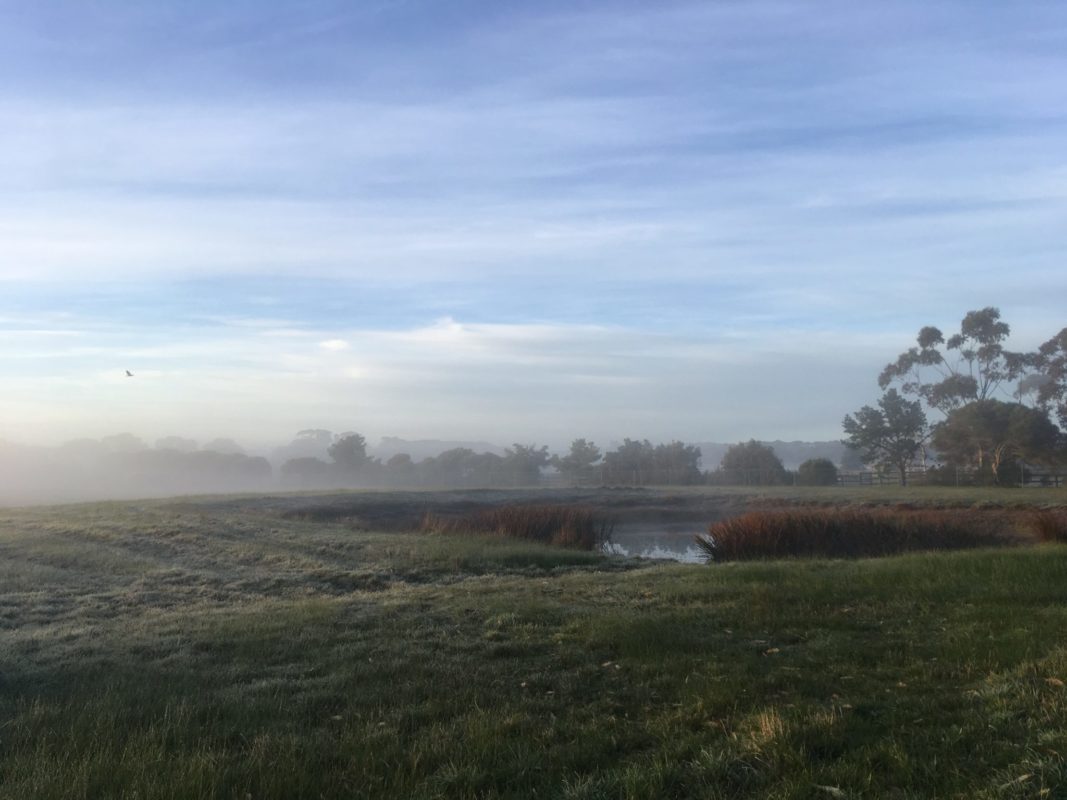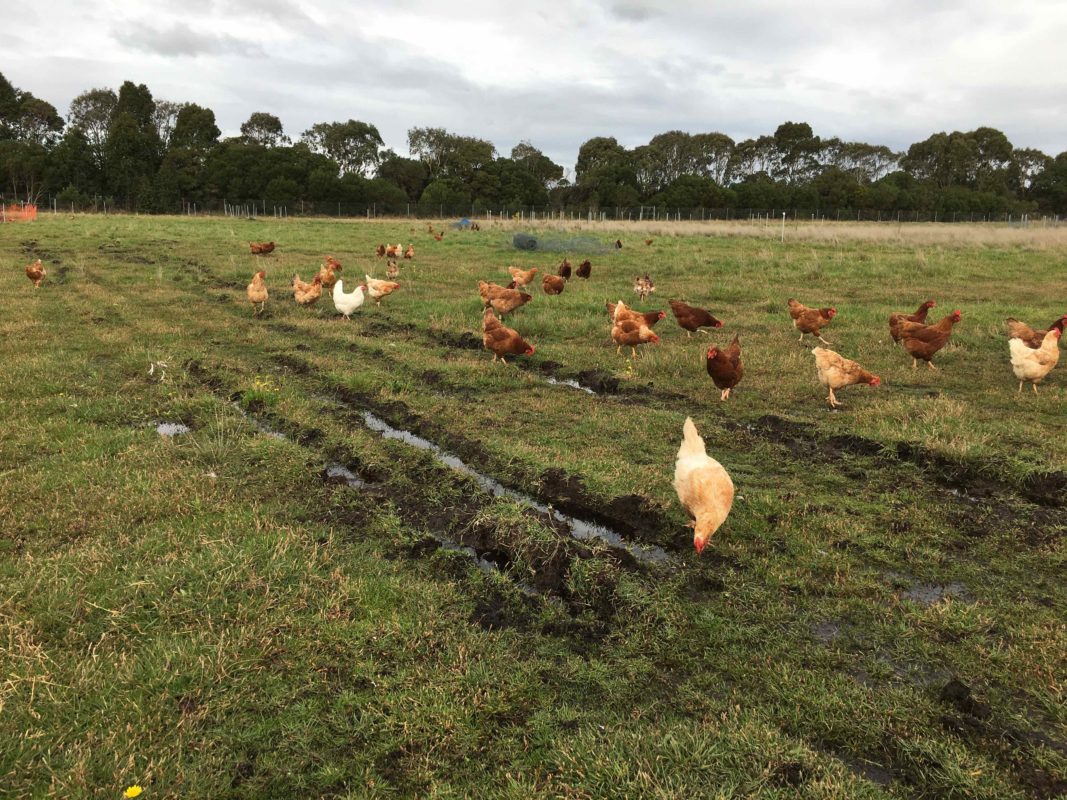We raise our chooks free range, and organic. From 1 day old our baby chicks have only certified organic feed, as well as veggie scraps, squares of pasture, and any bugs we pick out of the market garden. And as soon as they are old enough (around 6 weeks) they are outside, and never locked in again.
Most of the year, we move their mobile shelter and nest boxes twice a week. This way they get fresh pasture full of bugs, grub and grasses, and spread their fertiliser evenly for us without causing damage to the ground or nitrogen run off. Pastured eggs have been shown to be better nutritionally than cage, or other free range eggs. And combined with our organic approach, you can be sure of the very best eggs!
But, in the interests of transparency, accountability, and helping any other farmers facing similar difficulties: There are a few months of the year when we don’t move our chooks. In winter, our soil is simply too wet to move their home around. Our chicken trailer collects it’s own water from rainfall, and over winter the tanks are full adding 1000kg of weight. The wet pasture compacts more readily under weight as well, causing long term damage and destruction of the soil structure we are painstakingly building.
So we are parking our chickens for winter. What does that mean? It means we purposefully plan for this. We don’t just leave them in one spot when the rains fall. We organise and select a field:
- With trees to protect from winter winds and weather.
- That is high ground, so it stays dry (or as dry as possible-chooks don’t like wet feet)
- That hasn’t been used to park chooks in the last few years (so we know it’s soil that needs nitrogen)
- and finally, that is close to a driveable path.
Why park them near a driveable path? Because anyone who has owned chooks, even in a back yard, will tell you that they can kill off your ground cover big time. Not all of it if you have a large enough area, but even 1 chook in an acre will find a few favourite spots to hang out ad ‘moonscape’.
We don’t want that to happen. We don’t mind dust bathing- that’s healthy chook behavior. But if we lose ground cover, the soil structure becomes easier to damage. We stop using our chooks to sequester carbon. And we also loose many of the soil bacteria that help to cycle the nitrogen into the soil, rather than have it off gas into the atmosphere, or run off into our waterways.
So we keep great growing ground cover at all times. And if we can’t do that (due to winter parking, our drought summers) we compensate by bringing in other organic ‘ground cover’. We bring in mulch, weeds from the market garden. Any veggie scraps (carrot tops, outer cabbage leaves, damaged brocolli) as well as fresh mushroom compost from a few local producers.
We bring in over a tonne each week. It acts as a ground cover to protect our soil, and as our beautiful chooks turn it into rich compost, they also pick through it finding as many bugs, grubs and other choice morsels as they were in our pasture.
This is a great example of turning a negative into a positive. Our paddocks are simply too wet to move our chooks as often as we would like in winter. Especially because we are a tractor free farm. But acknowledging the problem, and good planning means we can still protect our environment, give our birds the best possible life, and as a bonus the winter chook paddock will be one of our best for years to come.


